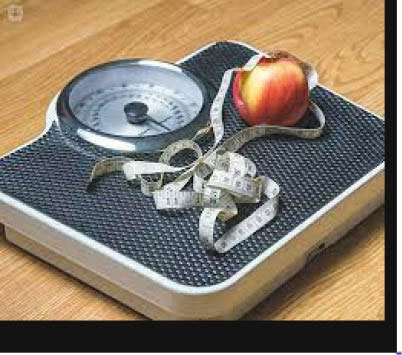Keeping off weight during the holiday season can be tough. But there are many reasons to maintain a healthy weight all year round.
A healthy weight lowers your risk for chronic diseases, like diabetes, heart disease, and certain cancers. It can also help you stay more mobile as you age.
Excess weight comes from taking in more energy, or calories, than your body needs. Some extra energy may be stored as fat. Many factors influence your risk for weight gain. These include poor diet, lack of sleep, and not getting enough physical activity. Genes can also play a role.
Certain medications affect weight gain, too. “In the U.S., we all live in an obesity-promoting environment to some degree,” says Dr. Susan Yanovski, an NIH expert on obesity and eating disorders.
“We are constantly tempted with low-cost, high-calorie foods. And, we’re expending a lot less energy than we used to in everyday life. Many jobs are sedentary, and even household activities like washing dishes take less energy to do now. You throw them in the dishwasher.
We have to work hard to incorporate activity into our everyday life.” Taking steps toward a healthy lifestyle—even small ones—can help you get on a path to a healthy weight. The definitions of overweight and obesity are based on body mass index, or BMI. BMI is based on your height and weight.
Overweight for adults is a BMI between 25 and 29.9. Obesity is a BMI of 30 or greater. NIH has a tool to help you calculate your BMI. “BMI is quick and easy to obtain, but it’s not perfect,” Yanovski says. A high BMI is usually caused by extra body fat.
But it can also come from extra muscle, bone, or water. If your BMI is high because of extra body fat, aim to lose about one to two pounds per week. “Some people might think losing weight quickly is the best strategy,” says Dr. Alison Brown, a nutrition scientist at NIH.
“But really, the safer and more sustainable weight loss is gradual.” To lose weight, you need to burn more calories than you take in. “Combining both calorie restriction plus physical activity tends to be most effective for weight loss,” Brown says.
To lose weight, experts suggest taking in about 500 fewer calories than you burn per day. This should get you to about one pound per week of weight loss, Yanovski says. The NIH Body Weight Planner can help you calculate exactly how many calories you need for your weight loss goals.
The tool takes your age, sex, and level of physical activity into account. Experts recommend limiting less healthy foods that are high in calories, saturated and trans fats, refined carbohydrates, or sugar.






